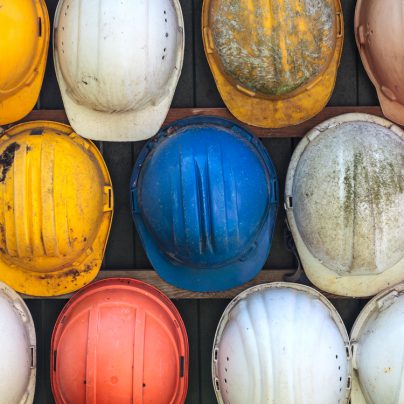Death from Fall Results in Huge Fine for Construction Company
Despite the huge amount of press falls from height receives there are still many accidents and deaths which occur that could have been avoided. The Work at Height Regulations 2005 and Health and Safety at Work 1774 Act place duties on anyone who is responsible for their own safety or the work of others where risks from falls are liable to cause injury and to make sure health and safety regulations are in place.
The regulations clearly state that working at height requires planning and organisation. All the risks must be assessed and that appropriate equipment is used to ensure the work is carried out in safety. This equipment must be maintained and inspected regularly.
Construction Firms Fail Employee
On April 26 2007 James Kelly was working for Glasgow Academy putting up stonework at a school. While stopping for a cigarette break, Mr Kelly fell from the third level of a loading tower of scaffolding and was pronounced dead on arrival as a result of his injuries at Glasgow’s Western Infirmary. Mr Kelly was working on behalf of Stirling Stone which had been contracted by Robertson Construction Central Ltd at the time of the accident.
After the accident the Health and Safety Executive investigated and found that there were no systems in place for putting materials onto the loading tower. They also discovered that both of the companies had not carried out assessments involving the risks that the work entailed.
When viewing the scene they noticed that there were insufficient toe boards and guard rails on the loading tower which Mr Kelly fell from. Furthermore neither of the companies had made sure that the loading tower and the scaffolding was inspected properly. The court was told how Mr Kelly had leant on a part of the scaffolding which had no cuplock which are used to secure the scaffolding in place.
A witness told the court how there were often problems on site which involved unqualified employees altering the scaffolding which should have been carried out by trained professionals. A supervisor should have been made aware of the workers changing the scaffolding and they should have also ensured that trained scaffolders visited the site each day and made any alterations necessary in order to keep the employees safe.
Court Finds Both Firms Guilty
As a result of these failings both of the companies were found guilty for their health and safety failings. Glasgow Sheriff Court fined Stirling Stone £200,000 for breaking section 2(1) of the Health and Safety at Work 1974 Act. And Robertson Construction Central Ltd was also fined £200,000 for breaking section 3(1) of the Health and Safety at Work 1974 Act.
A spokesman for Robertson Construction Central who was the main contractor in this incident said that the firm accepted the sentencing and are extremely remorseful for the death of Mr Kelly. The construction firm will be paying off the fine over a period of 2 months. Stirling Stone were ordered to pay £10,000 per month.
To discuss how you can help to prevent construction accidents in the work place contact our team of experts on 0800 1488 677 today.

A chartered (fellow) safety and risk management practitioner with 20+ years of experience. David provides a healthy dose of how-to articles, advice and guidance to make compliance easier for construction professionals, Architects and the built environment. Get social with David on Twitter and Linkedin.



One Comment
The right equipment is obviously needed if people are to work at height but as importantly employees need to be well trained. It is very often the case that the individual had not considered the risks to themselves (It won`t happen to me).
Clearly the employer must do all they can to ensure the safety of the employees and others, but without the right culture throughout then accidents will continue to occur.